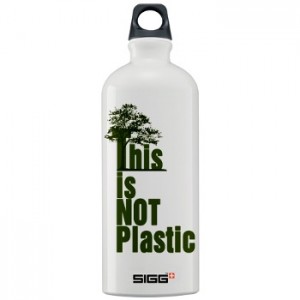Pointing Fingers, and or, Realizing I Need to Change Too

I complain a lot. It’s a well known fact, unfortunately. But when it came to uncovering the truth about why my plastic consumption, and others’, was so high, I put my pointing-fingers-mindset into overdrive. “It’s our consumption-heavy culture,” I said. “It’s peer and buying pressure,” I said. “It’s… me,” I thought.
Coming to the realization that my own practices are to blame as well doesn’t exactly feel great. What I had noticed in observing my own trends, however, was the there is definitely a social aspect as to how much plastic I consume. When I’m accompanied by others, when I’m buying a large amount of items, and when the trip was not planned out much beforehand, I’m more apt to use plastic bags, use unnecessary plastic utensils and such, and forget reusable bags. My consideration level for plastic usage appears to go hand in hand with how much focus I’m putting into what I’m doing at the time.
Take for example last Thursday when I needed to fill up a water bottle for my trip to Philly the next day. Had I put any thought into saving and reusing the plastic Vitamin Water bottle I drank earlier? Of course not, I’m Miranda. Guess who had to waste more plastic than necessary and get another? Of course, Miranda. What I’ve realized about my consumer practices is that my characteristic scatterbrained self does nothing for limiting plastic usage. Instead, my lack of preparation leads me to forget my reusable bags when I go to the farmer’s market, to buy two water bottles in one day, and to grab more plastic utensils at Wawa when I have normal spoons back in my dorm.
As for the social aspects of buying and using more plastic around more people: I believe it stems from convenience for the group. When Cherrier analyzed nine consumers who regularly use environmentally friendly bags for grocery shopping, she noticed a pattern in how both liberal and conservative views aid in ethical consumerism (Cherrier, 2006). Because we function as part of society, our choices in consumption of plastic does deal with a bit of anthropology and sociology on choices and surroundings that influence them. Both social norms and self-identity create contexts for less plastic usage by creating a, “…community of meaning and support, emotional affiliation, localized access to political discourses, personalization of the practice and identity formation,” to determine, “…the level of local and mundane microsocial encounters,” (Cherrier, 2006).
Is it my fault that I forget my bags and/or assimilate to what my group is doing? It is the fault of who I’m with? Cherrier explains that there’s a combination of social norms and self-identity that goes into environmentally friendly actions. I suppose I just have to take a psychological perspective on making myself use less plastic.
References:
Cherrier, Helene (2006). Consumer Identity and Moral Obligations in Non-Plastic Bag Consumption: A Dialectical Perspective. International Journal of Consumer Studies, 30(5), 515 – 523.
Leave a Reply